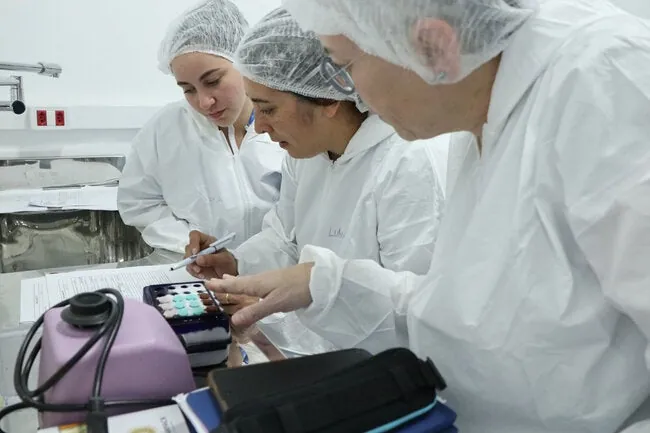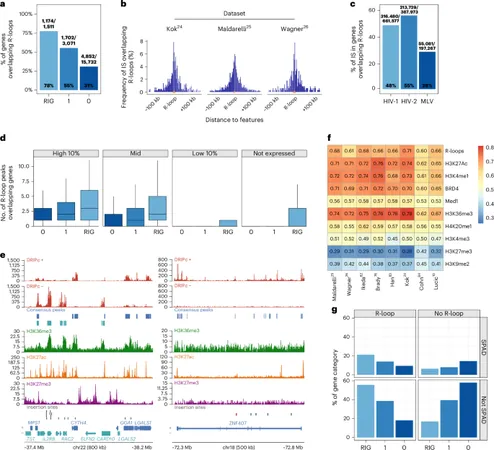
Strengthening Zoonotic Influenza Detection: A Major Step Forward in Latin America & the Caribbean!
2025-08-22
Author: Sarah
Workshop Boosts Avian Influenza Detection in Latin America
In a groundbreaking initiative, laboratory technicians from 19 countries across Latin America and the Caribbean converged in Rio de Janeiro for an intensive five-day workshop aimed at enhancing the detection of avian influenza A (H5N1). This virus, which has already caused over 4,700 outbreaks among birds and mammals, already poses a serious risk with more than 70 documented human cases in the Americas since 2021.
A Collaboration for Health Security
Hosted by the Pan American Health Organization (PAHO), in partnership with the International Atomic Energy Agency (IAEA), this workshop provided crucial training on advanced diagnostic techniques, including innovative methods for testing influenza in milk samples. This focus is especially important given recent outbreaks of zoonotic influenza in dairy cattle in the United States since 2024.
Expert Guidance for Effective Response
Participants, from countries including Argentina, Brazil, Cuba, and Mexico, engaged in hands-on training involving molecular techniques like real-time PCR to detect the virus and genetic sequencing for variant analysis. "Strengthening our region's laboratories is vital for early detection and control of avian influenza, safeguarding both animal and human health," emphasized Ottorino Cosivi, Director of PANAFTOSA.
A Multisectoral Approach to Global Health
Carla Bravo de Rueda, Animal Health Technical Officer at the IAEA, highlighted the importance of integrating animal and public health sectors: "Controlling zoonotic diseases demands a multisectoral approach. This collaboration exemplifies how veterinary training can produce professionals ready to tackle health challenges affecting both animals and humans."
Collaborative Efforts on the Frontline
Supported by various organizations, including the Federal Laboratory for Agricultural Defense in Brazil and the FAO Regional Office for Latin America and the Caribbean, this initiative also benefitted from funding through the Pandemic Fund and IAEA's regional project RLA 5085. The workshop reinforced the need for coordinated surveillance under the One Health approach, recognizing the intricate links between human, animal, and environmental health.
Growing Threat of A(H5N1)
Since 2020, the A(H5N1) virus has spread alarmingly across Africa, Asia, Europe, and the Americas, affecting wild and domestic birds and over 1,000 dairy herds in 17 U.S. states as of May 2025. While human-to-human transmission has not been observed, PAHO and WHO are urging ongoing vigilance to monitor the virus's evolution.
PAHO’s Commitment to Public Health
The PAHO is dedicated to providing continuous technical support to strengthen surveillance and preparedness in response to emerging diseases, ensuring the safety of public health, food security, and animal welfare throughout the region.



 Brasil (PT)
Brasil (PT)
 Canada (EN)
Canada (EN)
 Chile (ES)
Chile (ES)
 Česko (CS)
Česko (CS)
 대한민국 (KO)
대한민국 (KO)
 España (ES)
España (ES)
 France (FR)
France (FR)
 Hong Kong (EN)
Hong Kong (EN)
 Italia (IT)
Italia (IT)
 日本 (JA)
日本 (JA)
 Magyarország (HU)
Magyarország (HU)
 Norge (NO)
Norge (NO)
 Polska (PL)
Polska (PL)
 Schweiz (DE)
Schweiz (DE)
 Singapore (EN)
Singapore (EN)
 Sverige (SV)
Sverige (SV)
 Suomi (FI)
Suomi (FI)
 Türkiye (TR)
Türkiye (TR)
 الإمارات العربية المتحدة (AR)
الإمارات العربية المتحدة (AR)